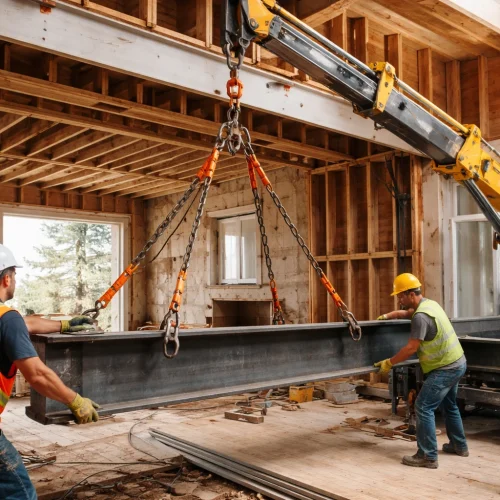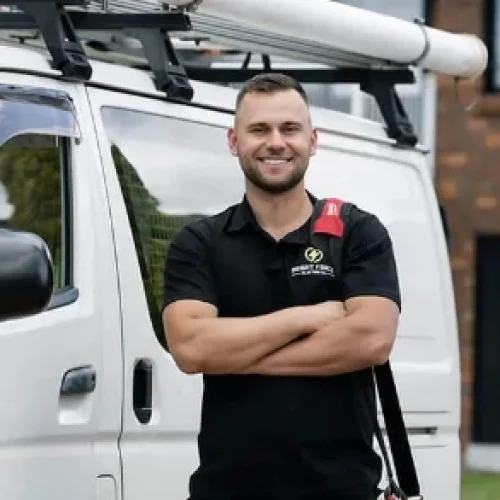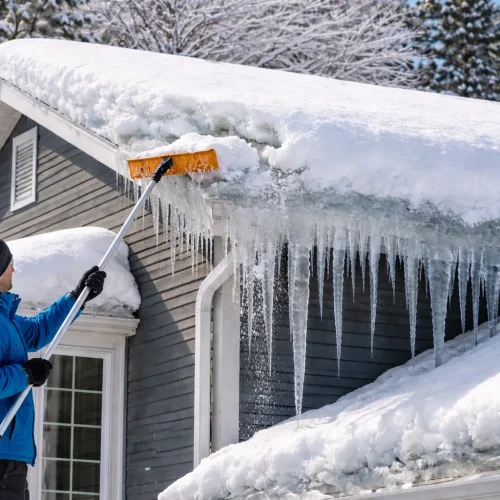
As the weather starts to cool in Modesto, most homeowners turn on their heating systems for the first time in months. That’s when many realize their furnace isn’t working quite the way it should. Maybe it’s making strange noises, blowing cool air, or not turning on at all. These issues usually come down to one thing: lack of regular maintenance.
In a city like Modesto, where temperatures can dip sharply in winter, you rely on your heating system to keep your home comfortable and safe. However, many homeowners overlook routine furnace maintenance until a problem surfaces. The truth is, regular heating care isn’t just about fixing problems when they appear. It’s about preventing them before they start. From improved efficiency and air quality to lower energy bills and fewer breakdowns, regular maintenance protects both your comfort and your investment.
Keeping your system in top shape is one of the smartest things you can do for your home, your wallet, and your peace of mind.
The Importance of Professional Heating Maintenance
A professional heating checkup is more than just a quick look at your system. It’s a detailed inspection that ensures every component of your furnace is running safely and efficiently. Technicians check for potential issues, clean built-up debris, and make adjustments that keep your system performing like new.
If you’re a homeowner looking for reliable furnace repair in Modesto, CA, local professionals can provide thorough inspections and timely maintenance to keep your heating system running safely and efficiently. Regular maintenance prevents costly breakdowns and keeps your home comfortable when temperatures drop. Local professionals understand how the region’s climate affects heating performance. They know that dust, fluctuating temperatures, and frequent use can all impact system reliability.
When experts handle your maintenance, they’ll inspect your furnace for safety concerns like gas leaks, test your thermostat accuracy, and check airflow levels to make sure heat reaches every corner of your home. It’s a proactive approach that saves you from the stress and expense of unexpected breakdowns later in the season.
Preventing Breakdowns Before They Happen
One of the best reasons to schedule regular heating maintenance is prevention. A furnace is made up of many parts that work together, and even one small issue can affect the entire system. For example, a dirty filter can restrict airflow, causing your furnace to overheat or shut down unexpectedly. Worn belts or loose connections can lead to costly component failures if left unchecked.
During routine maintenance, technicians identify these small problems early and fix them on the spot. This proactive care prevents unexpected breakdowns when you need heat the most. The last thing you want is a furnace that fails during a cold snap when service calls are in high demand.
Routine maintenance gives you confidence knowing your system is ready for winter. It’s a simple way to protect your comfort and avoid emergency repair costs that can often be much higher than a standard service visit.
Tips for Saving Energy and Reducing Monthly Bills
When your heating system is clean and tuned, it doesn’t have to work as hard to warm your home. Dust buildup, worn components, and poor calibration can make your furnace use more energy than necessary. Regular maintenance keeps it running efficiently, helping you save money on your monthly utility bills.
A properly maintained system also distributes heat more evenly, preventing those frustrating “cold spots” in your home. Small tasks like cleaning burners, checking thermostats, and tightening electrical connections can all improve efficiency. Over time, those energy savings add up, especially during peak winter months.
Think of regular maintenance as an investment that pays for itself. Instead of wasting energy and money on an overworked system, you’re ensuring your furnace runs at its best, saving you money while keeping your home comfortable.
Extending the Lifespan of Your Heating System
Your heating system is one of the biggest investments in your home. Naturally, you want it to last as long as possible. Regular maintenance helps you get the most out of that investment by reducing wear and tear.
When your furnace is cleaned and serviced regularly, components operate smoothly, and stress on the system is minimized. A neglected unit, on the other hand, must work harder to deliver the same results, wearing out parts faster and increasing the chance of early failure.
Most well-maintained furnaces can last 15 to 20 years, while neglected ones might need replacement after just 10 years. By investing in regular maintenance now, you’re extending your system’s life and saving thousands of dollars down the road on premature replacements.
A longer-lasting system means fewer disruptions, fewer repair costs, and years of reliable performance when you need it most.
Improving Indoor Air Quality and Family Health
Your furnace does more than keep your home warm. It also affects the air your family breathes. Over time, dust, pollen, and other particles can collect in your system and circulate through your home whenever the heat runs. Without regular cleaning and filter replacements, these pollutants can lower your indoor air quality and aggravate allergies or respiratory issues.
Routine maintenance helps prevent this. During service, technicians clean or replace filters, inspect air ducts, and make sure your system isn’t circulating contaminants. This keeps your home’s air cleaner, fresher, and healthier.
Balanced humidity is another benefit. A properly maintained heating system helps regulate moisture levels, reducing dryness in the air. This prevents dry skin, irritated sinuses, and even damage to wooden furniture or flooring.
When you maintain your furnace, you’re not just protecting your system. You’re protecting your family’s health and comfort, too.
Simple Maintenance Habits Homeowners Can Follow
While professional maintenance is essential, there are simple steps you can take throughout the year to keep your furnace running efficiently. The easiest one is checking and replacing your air filters regularly, typically every one to three months. Clean filters improve airflow, boost efficiency, and reduce strain on the system.
Keep the area around your furnace clear of boxes, cleaning supplies, or other items that could restrict airflow or create safety hazards. If you have an outdoor unit, remove leaves or debris that could block ventilation.
It’s also smart to pay attention to signs your system may need attention, unusual noises, uneven heating, or sudden increases in your energy bill. These are early warnings that it’s time to call a professional before the issue worsens.
Conclusion
Finally, make it a habit to schedule a full inspection once a year, preferably in the fall before heating season begins. It ensures your system is ready to perform when you need it most. When you make heating maintenance part of your to-do list, you’re doing more than taking care of your furnace. You’re taking care of your home and everyone in it.
FAQS
Once a year—ideally in the fall—to catch issues early and ensure peak efficiency.
Yes; cleaning and calibrating components reduces strain so your system uses less energy.
Techs fix small problems—like worn belts or restricted airflow—before they cascade into failures.
Absolutely; neglected units may fail around 10 years vs. 15–20 years with routine care.
Yes; filter replacement and cleaning reduce dust, pollen, and irritants circulating through your home.
Safety (gas leaks), thermostat accuracy, airflow, burner cleanliness, and electrical connections.
Replace filters every 1–3 months and keep the area around the furnace clear of clutter and debris.
If you notice cool air, odd noises, uneven heating, or sudden spikes in your energy bill.
Yes; seasonal dust and intermittent use still affect reliability and efficiency.
You’ll beat peak demand and ensure your system is ready for the first cold snap.













